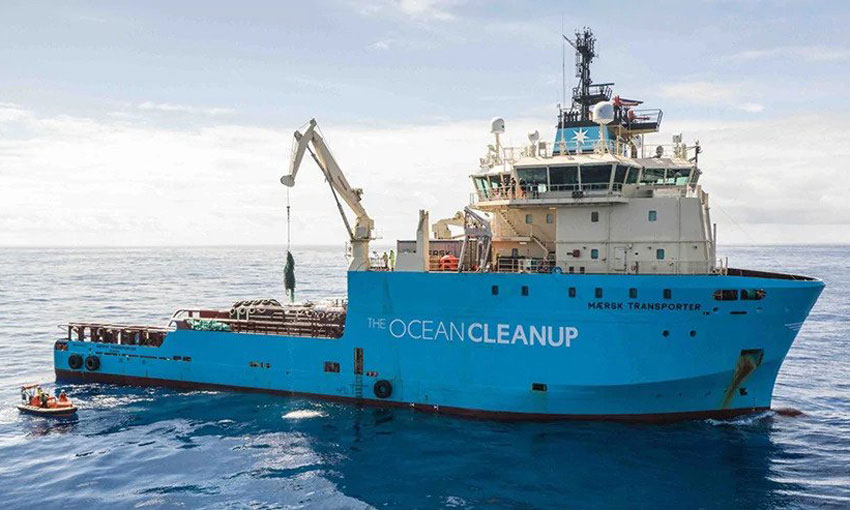MAERSK is extending its relationship with The Ocean Cleanup with a new three-year partnership.
The non-profit organisation works to develop advanced technologies to rid the world’s oceans of plastic. To achieve this, the organisation aims to stop the inflow via rivers and clean up what is already in the ocean, with a view to reach a 90% reduction of floating ocean plastic by 2040.
Maersk vice-president corporate communications and sustainability Mette Refshauge said, “As a responsible maritime operator, we are committed to ensuring that the oceans can remain a healthy environment for generations to come. We are therefore very pleased to not just prolong but broaden the partnership agreement initiated back in 2018.”
Besides Maersk Supply Service support with vessel operations and offshore project management, Maersk will now support The Ocean Cleanup with logistics end-to-end handling services, ranging from worldwide shipment from different locations to airfreight; container and special transport; customs clearance; and warehouse and storage management.
“We will have a transport and supply chain manager fully embedded in The Ocean Cleanup´s office in Rotterdam,” Ms Refshauge said.
“That program manager will serve as the single channel for them to engage with the full range of Maersk’s supply chain and transport services globally and will help The Ocean Cleanup to develop their own supply chain management capacity over time.”
The Ocean Cleanup director of science and operations Lonneke Holierhoek said Maersk’s support over the past three years has been important.
“We are grateful to not only renew this partnership, but to strengthen it with their end-to-end logistics service,” she said.
“This contribution to our mission will not only help us clean more plastic from the ocean, but it will help us to effectively deploy more Interceptors river cleaning systems, and develop our next products made of certified plastic from the Great Pacific Garbage Patch.”
As part of the partnership agreement, Maersk will also assist The Ocean Cleanup in deploying scientific sensor technology aboard Maersk’s own fleet to map plastic floating in the oceans and help the organization have a better understanding of the severity of the problem they are working to solve.
The goal is to assist The Ocean Cleanup in mapping concentrations of harmful plastic in the world’s oceans to better focus The Ocean Cleanup’s efforts. “What better way to map the oceans than to harness one of the world’s largest fleets?” Robin Townley, head of special project logistics at Maersk said.

